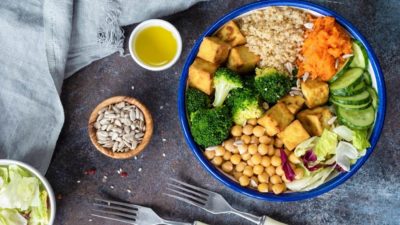Hiking

Nutrition requirements:
Whether you’re going for a day hike or packing your backpack for a week or more, you need some quality nourishment that doesn’t weigh much. Hiking rarely involves just walking on level ground, there are likely some steep ups and downs, so your body is working hard, especially if you’re carrying a heavy pack.
You need some good carbs for energy, protein to feed and repair your muscles and some quality healthy fats.
Key points:
1. For good carbs, protein and fats, pack some nut and dried fruit snack bars, trail mix, nuts and seeds, and/or granola.
2. Fruit and vegetables are a must – they don’t provide just good carbs and hydration, they also pack antioxidants that help protect your muscles and joints from excessive damage. If you’re going on a multiday hike, add some dried fruit too – freeze-dried if you need to pack superlight.
3. For day hikes, sandwiches or wraps make a great lunch but for longer hikes, you’ll need something that lasts like long-life rye bread, oat cakes, lentil pouches, nut butters, protein powder or protein bars.
4. For dinner under the stars, rice pouches, whole wheat couscous or instant oatmeal all offer good carbs. To add some protein, throw in canned beans or a handful of seeds. Instant tomato soup can substitute tomato sauce but try to also have some fresh veggies to make your meal healthy.
5. Hydrate! Water is heavy but if you don’t drink enough, your body will suffer and you’ll feel more tired. If you’re planning a longer hike, map out water sources along the way to refill your bottles and take water purification tablets or a filter to make sure you can always get enough to drink.
Sample Meal Plan: Depending on the intensity and duration of your hiking adventures, either Active Person or Endurance Athlete!
Inspiration: There are many vegan hikers but as it’s not a competitive sport, there are no ‘stars’ as such. However, a quick search on the internet will give you plenty of inspiration!
Brandon Wanthal, on hiking the Appalachian Trail as a vegan: “Looking back on the past 1,400 miles, I have maintained a 150% faster pace than average, and actually gained 5–10 pounds. (the average thru-hiker loses between 10–25 pounds) I’ve had good daily energy, low muscle fatigue and feel satisfied when I hang my bear bag at night.”







